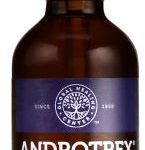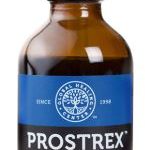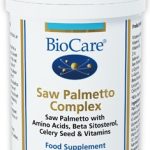Let’s face it; sexual disfunction’s an issue that doesn’t suffer from a lack of attention. It’s talked about a great deal in both health circles and the media. Yet, for those of a certain age (or those not) and those who suddenly find it’s something they’re suffering from, do they actually have the first idea how they might try to improve or even return their sexual desire?
Well, one of the best ways to stimulate your libido is to fall back on that old-fashioned way of stimulating the rest of your body – exercise! Here are some specific suggestions…
- General exercise – impotency can be significantly helped by getting moving; those who take erectile dysfunction medication appear to reap best results when they combine it with exercise and this seems to have been proved by a study among men on hormone suppression therapy (to treat prostate cancer), as test subjects who exercised more than those who didn’t claimed they were more sexually active1
- Women ought to exercise too – it’s not just about men in this regard, as unsurprisingly women suffering from depression and antidepressant side-effects can lose sexual desire; however, women’s physical response to and enjoyment of sexual activity appears to be enhanced thanks to exercise2
- Exercising the mind – yes, mind over matter; a study that looked into perceived sexual stimulation (which used 128 women and 98 men as test cases) found that mental activity based around sexual imagination aided in the stimulation of arousal in every case3
- Deep-breathing and stretching – sounds simple, doesn’t it? It is; merely taking the time and effort to deploy a spot of deep-breathing and stretching can also increase sexual drive and satisfaction4
- Kegel exercises – essentially easy-to-perform floor exercises involving contraction and relaxation of pelvic muscles5, they’re great for affording these muscles a decent work-out and strengthening the lower abdomen’s muscles; they’re often highly recommended for women on the cusp of giving birth and for men seeking to regain specific muscle control following prostate removal, so no surprise then they can also enhance muscle performance for both sexes during intercourse
- Go for a walk (especially on a nice day) – sure, this one might sound silly, basically owing to its simplicity, yet getting out of doors and ensuring you and your body’s able to absorb some marvellous health-giving sunlight can genuinely (so research proves) help increase sexual desire in both men and women6. Why? Because sunlight, thanks to its stimulation of Vitamin D synthesis and neurotransmitter function in the body, has the uncanny knack of driving up both energy generation and alertness.
 Try a libido supplement – finally, failing all else (or perhaps in combination with all the above suggestions; why not?), men may like to try an entirely naturally-derived supplement revered for its delivery of good results when it comes to increased libido; available from The Finchley Clinic, we suggest Androtrex, which is designed to assist the male body in regulating proper hormone balance to generate superior vitality and normal libido and sexual drive.
Try a libido supplement – finally, failing all else (or perhaps in combination with all the above suggestions; why not?), men may like to try an entirely naturally-derived supplement revered for its delivery of good results when it comes to increased libido; available from The Finchley Clinic, we suggest Androtrex, which is designed to assist the male body in regulating proper hormone balance to generate superior vitality and normal libido and sexual drive.
References:
- Cormie P., Newton R. U., Taaffe D. R., Spry N., Joseph D., Akhlil Hamid M. and Galvão D. A. ‘Exercise maintains sexual activity in men undergoing androgen suppression for prostate cancer: a randomized controlled trial’. Prostate Cancer Prostatic Dis. 2013 Jun; 16 (2): 170-5. doi: 10.1038/pcan.2012.52.
- Lorenz T. A. and Meston C. M. ‘Acute exercise improves physical sexual arousal in women taking antidepressants’. Ann Behav Med. 2012 Jun; 43(3): 352-61. doi: 10.1007/s12160-011-9338-1.
- Goldey K. L. and van Anders S. M. ‘Sexual arousal and desire: interrelations and responses to three modalities of sexual stimuli’. J Sex Med. 2012 Sep; 9(9): 2315-29. doi: 10.1111/j.1743-6109.2012.02845.x.
- Bay R., Ismail S. B., Zahiruddin W. M. and Arifin W. N. ‘Effect of combined psycho-physiological stretching and breathing therapy on sexual satisfaction’. BMC Urol. 2013 Mar 25; 13: 16. doi: 10.1186/1471-2490-13-16.
- Bridgeman B. and Roberts S. G. ‘The 4-3-2 method for Kegel exercises’. Am J Mens Health. 2010 Mar; 4(1): 75-6. doi: 10.1177/1557988309331798.
- Kontula O. and Väisälä L. ‘How does summer affect sexual desire?’. Duodecim. 2013; 129 (13): 1375-8.


